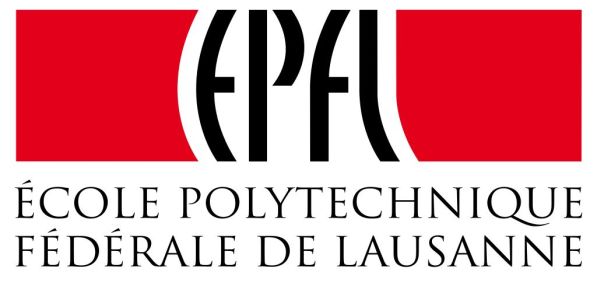
Ecole polytechnique federale de Lausanne (EPFLx), the Swiss Federal Institute of Technology in Lausanne, is offering free on-line course named as Micro and Nanofabrication (MEMS). The course is intended to learn the fundamentals of microfabrication and nanofabrication by using the most effective techniques in a cleanroom environment.
The course covers the basis of manufacturing for nearly all modern miniaturized systems that are ubiquitously used in our daily life. Micro- and nanofabrication can be taught to students and professionals by textbooks and ex-cathedra lectures, but the real learning comes from seeing the manufacturing steps as they happen. The course will start on January 9, 2017.
Course At A Glance
Length: 6 weeks
Effort: 3 hours per week
Subject: Engineering
Institution: Ecole polytechnique federale de Lausanne (EPFLx)
Languages: English
Price: Free
Session: Course starts on January 9, 2017
Providers’ Details
Ecole polytechnique federale de Lausanne (EPFL) is the Swiss Federal Institute of Technology in Lausanne. The past decade has seen EPFL ascend to the very top of European institutions of science and technology: it is ranked #1 in Europe in the field of engineering by the Times Higher Education (based on publications and citations), Leiden Rankings, and the Academic Ranking of World Universities.
Requirements
Basics in Physics and Chemistry
About This Course
- Microfabrication and nanofabrication are the basis of manufacturing for nearly all modern miniaturized systems that are ubiquitously used in our daily life. Examples include computer chips and integrated sensors for monitoring our environment, cars, mobile phones, medical devices and more.
- Micro- and nanofabrication can be taught to students and professionals by textbooks and ex-cathedra lectures, but the real learning comes from seeing the manufacturing steps as they happen.
- In this engineering course, they will go a step beyond classroom teaching to not only explain the basics of each fabrication step but also show you how it’s done through video sequences and zooming into the equipment.
How to Join This Course
You can sign up by the given link to join this free on-line course: https://courses.edx.org/register?course_id=course-v1%3AEPFLx%2BmemsX%2B2016_T4&enrollment_action=enroll&email_opt_in=true
Course Format
Week 1: MEMS and cleanroom introduction
This module introduces the basics of electromechanical systems (MEMS) and cleanroom fabrication. In a first part, the working principle of three successful MEMS devices, which are accelerometers, microphones, and bulk acoustic wave resonators, are presented.
Week 2: Chemical vapor deposition (CVD)
This module on chemical vapor deposition or CVD describes in detail basic principles of CVD and will show you the cleanroom infrastructure that is used to run a CVD process.
Week 3: Physical vapor deposition (PVD)
This module on physical vapor deposition describes in details the two main PVD methods; thermal evaporation and sputtering. Physical principles, setups configurations, process parameters, deposited films properties, advantages, and limitations, as well as examples, are introduced and discussed for these two techniques. In addition, an overview of some alternative techniques such as ion assisted deposition, molecular beam epitaxy and pulsed laser deposition is also presented. Finally, thin films growth process on the substrate is also discussed.
Week 4: Lithography
This module on lithography describes in details the two main resist patterning methods: optical and electron beam lithography. Physical principles, setup configurations, process parameters, resist properties, advantages, and limitations, as well as examples, are introduced and discussed for these two techniques. In addition, an overview of some alternative techniques such as nanoimprint lithography or thermal scanning probe lithography is also presented.
Week 5: Dry etching
This module on dry etching describes etching in a gas environment. We will present also dry etching processes that use intrinsically reactive gases and that do not require to have the gas in the plasma state, which leads to a significantly simpler etching system. We will finally give examples of specific dry etching processes for silicon dioxide, silicon nitride, silicon, polymers, and metals.
Week 6: Wet etching
This module on wet etching describes etching in a liquid environment. We will introduce anisotropic wet etching of silicon substrates, where certain lattice planes are etched and others not, isotropic etching of silicon, and finally thin membrane microfabrication techniques using wet etching.
Why Take This Course?
This is a free on-line course and after completion of the course, you will learn the fundamentals of microfabrication and nanofabrication by using the most effective techniques in a cleanroom environment.
Learning Outcomes
- How to select the correct fabrication process for a specific micro-device or microsystem
- Establish the workflow for the cleanroom processes
- Identify how physical and chemical phenomena govern miniaturized systems for various applications
- Resource planning for a given microsystem fabrication
Instructors
- Juergen Brugger: Juergen is Professor in Microengineering and Materials Science at the School of Engineering at EPFL. He received his Ph.D. from University of Neuchatel, Switzerland. Before joining EPFL he had research assignments at Hitachi Research in Tokyo, IBM Research in Zurich, and Twente University, The Netherlands.
- Martin Gijs: Martin is Professor of Microsystems at the School of Engineering at EPFL. He received his Ph.D. in Physics from the University of Leuven, Belgium in 1986. After his Ph.D. and before joining EPFL in 1997, he was a researcher at the Philips Research Laboratories in Eindhoven, The Netherlands.
Suggested Reading
Basics in Physics and Chemistry
Conclusion
The candidate must join this free on-line course because after completion of the course theywill learn the fundamentals of microfabrication and nanofabrication by using the most effective techniques in a cleanroom environment.
Detailed Information:
For more information about the course, you can click on the given link: https://www.edx.org/course/micro-nanofabrication-mems-epflx-memsx#!

